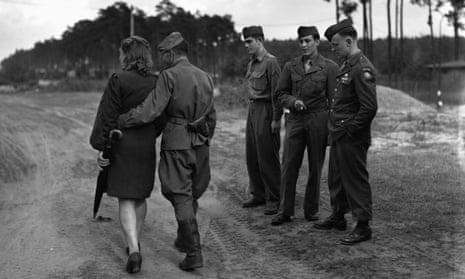Two years after the end of the war Berlin still smelled of death. Each street contained dozens of ruins and every ruin, especially after rain had fallen and there was still a dampness in the air, retained the same sickly smell. It may have been, as some Germans honestly believed, corpses buried beneath them, or it may have been the state of the drains. It may simply have been the projection of a short but stormy past into the greyness of that particularly uninviting present.
A Woman in Berlin (Secker and Warburg, pp. 284, 15s) tells the story of a single German woman of middle-class family, living in the Neu-Kölln district of Berlin. This district has nothing much in common - as the publishers suggest - with Bloomsbury or Bayswater. It is the Shepherd’s Bush of Berlin, an urban area lacking in all sense of individuality. Perhaps this makes the story of the anonymous author all the more horrifying. Her book is a fully documented account of incessant and revolting rape, perpetrated by drunken Soviet soldiers on many German women they came across.
A book of this kind could hardly have set out to point a moral. This one certainly did not, and there is an unhappy feeling left that it set out simply to sell itself. For the story, although graphic and morbidly fascinating, is not really truthful. It suggests that the women of Berlin - all of them - were raped by Red Army soldiers, and had no choice in the matter. The fact remains that many Berlin women were imbued with a greater individuality than the mere ability to commit facts to paper. Physical violence was suggested to them - even forcibly - but they were able to repulse it. This might be written in extenuation: “A Woman in Berlin” is the transposition on to paper of a single figure from a Hieronymous Bosch canvas. It is indescribably ugly.
Following the negative reaction to her memoir, the anonymous author (probably journalist Marta Hillers) refused to release any further editions in her lifetime. It was finally republished to critical acclaim in 2003; historians believe it to be authentic.

Comments (…)
Sign in or create your Guardian account to join the discussion